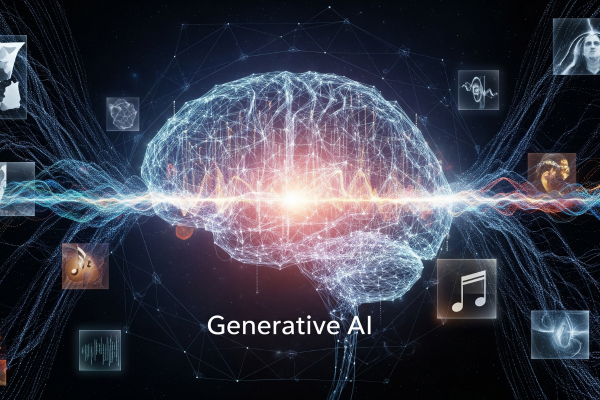AI & SEO: How Artificial Intelligence Is Already Shaping the Future of Search Engine Optimization
In the heart of Southeast Asia, Singapore stands as a gleaming symbol of digital transformation—a place where technology, innovation, and urban ambition converge. Amidst this forward-thinking landscape, businesses large and small are in a constant race for online visibility. Search Engine Optimisation (SEO), once a domain dominated by backlinks and keyword stuffing, is now evolving at a breakneck pace, thanks in no small part to Artificial Intelligence (AI). In 2025 and beyond, the interplay between AI and SEO is no longer a futuristic fantasy—it is already reshaping how Singaporean businesses connect with their digital audiences.
The Dawn of AI in Singaporean SEO
Singapore’s traditional SEO practices mirrored global trends: a focus on keyword rankings, meta descriptions, link-building, and technical audits. But as Google’s algorithms grew smarter with AI-powered components like RankBrain, BERT, and the more recent Search Generative Experience (SGE), the digital marketing landscape changed. These algorithms now understand context, intent, and semantics better than ever before—shifting the focus from raw optimisation to genuine relevance.
Given Singapore’s status as a digital-first nation with a high internet penetration rate and one of the world’s fastest broadband speeds, it is unsurprising that AI is making a significant impact here. Singaporeans are tech-savvy, mobile-first consumers who expect hyper-relevant content and seamless experiences, making AI-driven SEO not just beneficial—but necessary.
Current Applications: How AI Is Already Being Leveraged in Singaporean SEO
Smarter Keyword Research & Intent Understanding
AI-powered tools such as SEMrush, Ahrefs, and Google’s Search Console Insights are going beyond basic keyword matching. Instead, they interpret search intent and analyse Singapore-specific colloquialisms (e.g., “chope” a seat, “lah” for emphasis), user behaviour patterns, and long-tail keyword trends. For instance, a search like “best kopi spot near Raffles Place” is not just about caffeine—it’s about culture, location, and personalised preference. AI tools are equipped to understand these nuances and guide content strategies accordingly.
Content Creation & Optimisation
AI is revolutionising content workflows. Platforms like Surfer SEO, Jasper, and Frase can generate outlines, suggest internal links, analyse competitors, and ensure semantic richness—all while staying aligned with Google’s E-E-A-T (Experience, Expertise, Authoritativeness, Trustworthiness) principles. However, for the multicultural and multilingual Singaporean audience, human oversight remains essential. AI might understand grammar and structure, but a local writer adds the necessary cultural sensitivity—ensuring content resonates authentically.
Technical SEO Automation
AI is invaluable in addressing the backend aspects of SEO. With tools like Screaming Frog SEO Spider and Google’s PageSpeed Insights, AI detects and fixes broken links, crawl errors, mobile usability issues, and site speed bottlenecks. These technical fixes are critical in a fast-paced market like Singapore, where even a one-second delay in loading can cause users to bounce.
Predictive Analytics & Competitive Analysis
Predictive SEO, fuelled by AI, empowers marketers to spot opportunities before they become mainstream. Tools analyse local competitors, assess shifting trends (e.g., seasonal shopping spikes around Chinese New Year or National Day), and forecast traffic changes. Businesses can then fine-tune their strategies with proactive—not reactive—precision.
Personalised User Experience (UX)
AI is also transforming how users engage with websites. Dynamic landing pages that adapt based on user behaviour, personalised recommendations based on past activity, and chatbot interactions tailored to Singaporean preferences—all contribute to improved engagement, longer session times, and higher conversions.
The Singaporean Edge: Unique Considerations for AI-Powered SEO
Singapore’s diverse population presents both a challenge and an opportunity. With four official languages (English, Malay, Mandarin, and Tamil) and a melting pot of cultures, businesses must create content that caters to linguistic and cultural variations. AI-powered translation and natural language processing (NLP) tools are instrumental in bridging this gap—ensuring content resonates with every demographic.
Additionally, local SEO is particularly relevant in Singapore. With users frequently searching for “near me” services, whether it’s hawker stalls, tuition centres, or fitness studios, AI can help optimise Google Business Profiles, manage local citations, and generate geo-targeted content that surfaces in local searches.
AI also aids in understanding Singapore-specific consumer behaviours, from mobile-first browsing habits to payment method preferences (PayNow, GrabPay, etc.), enabling businesses to align their SEO strategies with real user expectations.
Challenges & The Human Element: Why SEO Specialists Are Still Indispensable
While AI brings unprecedented automation and insight, it isn’t a silver bullet.
One major concern is the “black box” nature of AI algorithms. AI might tell you what’s working, but not always why. This opacity makes it risky to rely solely on AI without human analysis. Ethical concerns also loom large: overly relying on AI-generated content can dilute brand authenticity, particularly in a market that values trust and credibility.
Moreover, no machine can replicate human creativity, empathy, or strategic thinking. Singaporean SEO professionals play a crucial role in building narratives, anticipating shifts in sentiment, and crafting content that connects emotionally with users. As AI becomes more integrated, the future belongs not to those who resist it—but to those who collaborate with it.
Digital marketers in Singapore must therefore upskill continuously, learning how to use AI tools effectively while maintaining control over their brand voice and customer experience.
The Future Landscape: What’s Next for AI and SEO in Singapore?
The evolution of SEO is far from over. One of the most promising developments is Generative Engine Optimisation (GEO)—optimising content not just for search engines, but for AI-driven experiences, such as Google’s SGE and conversational AI models. This will require content that answers complex, multi-layered queries clearly and comprehensively.
Simultaneously, the rise of multimodal search—where users search through voice, images, and video—is being powered by AI technologies like Google Lens and voice assistants. Businesses in Singapore should start optimising for visual and voice search now to stay ahead.
Furthermore, SEO, UX, and data analytics are converging. With AI integrating these domains, Singaporean companies that can combine technical SEO skills with data science and customer journey mapping will dominate the digital space.
Conclusion: Adapting to an AI-Driven SEO Era in Singapore
Artificial Intelligence is not replacing SEO in Singapore—it’s redefining it. For Singaporean businesses, the integration of AI into SEO strategies is no longer optional. It’s a competitive necessity. Whether you’re a boutique law firm in Tanjong Pagar, an e-commerce giant in Suntec, or a start-up in one-north, the ability to leverage AI will determine your visibility, relevance, and long-term digital success.
By embracing AI tools while preserving the human touch, businesses can not only survive but thrive in the evolving digital landscape. As with much of Singapore’s success story, the secret lies in strategic adaptation—and the time to adapt is now.




